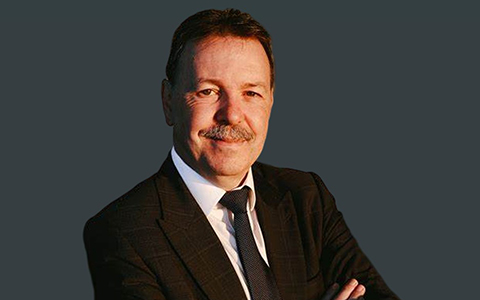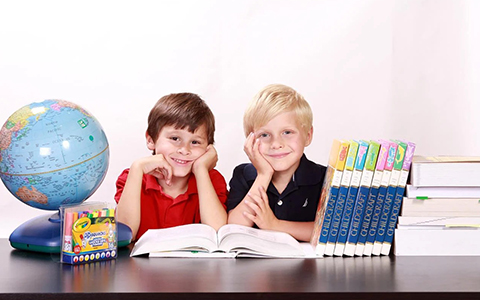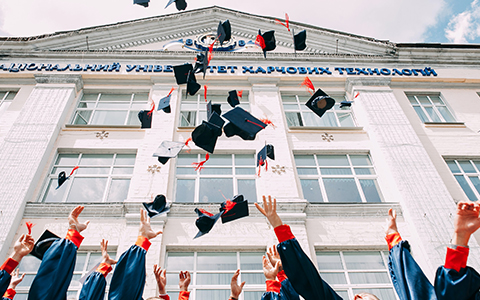 瑞士小记者:中瑞文化差异
瑞士小记者:中瑞文化差异
瑞士小记者|中瑞文化差异 作者:思青,一名在洛桑酒店管理商学院在读的大三学生。今年三月,思青开始在瑞士雷梭勒家族办公室担任行政助理实习生。 本篇文章将以思青的第一人称视角,谈谈她选择来瑞士学习的原因,以及她所发现的中国与瑞士的不同之处。 为什么选择瑞士? 我没有选择北美或英国等其他热门留学国家,而是决定来瑞士上大学,有以下几个原因。 无论是从个人人身安全、经济还是从政治方面来说,瑞士都是一个安全的国家。几乎为零的低犯罪率、严格的枪支管制条例和高水平的受教育公民保证了在瑞士生活、学习和工作的高度人身安全。瑞士拥有的充满活力的文化生活、美丽的风景、高质量的房地产和高质量的教育,为人们提供了高标准的生活。她还拥有稳定的货币、强大的购买力、适度的税收和永久的中立性,这表明该国的经济和政治稳定,是未来投资的最佳选择。 在瑞士,人与人之间有一种天然的信任感。尽管每个人都是素不相识的陌生人,但当他们看到别人需要帮助时,还是会伸出援助之手。也许是因为他们一直生活在这样一个湖光山色的美丽地方,他们往往相信人性的善良,非常热衷于帮助他人,向他们表达善意。 有一次,当我在格林德瓦旅行时,从一辆滑板车上摔下来受伤了。我得到了不同的瑞士人的帮助,包括路人、救援人员、酒店工作人员等等。虽然我受了严重的伤,但在很多人的帮助下,这仍然是一次非常温暖的经历。 此外,由于瑞士在创新能力、高教育水平的劳动力和最先进的科研机构方面的优势,她已被列为全球最具创新能力的国家。她促进了公司、初创企业和大学的合作,进行研究并将研究成果转化为可销售的产品和服务,以加强国家经济的创新能力和力量。瑞士还为初创企业和希望推动创新的年轻人提供了理想的环境。在这里,瑞士提供了良好的基础设施和人脉网络。 瑞士的酒店管理学校也有很高的声誉;例如,洛桑酒店管理商学院(EHL)连续四年在最权威的全球大学排名之一QS(Quacquarelli Symonds)排名中在全球酒店管理大学中排名第一,在瑞士商学院中排名第五。瑞士酒店管理大学被称为 "高级酒店管理人才和职业经理人的摇篮",他们的酒店管理教育提供广泛而实用的课程,采用理论和实践相结合的模式,注重提高学生的综合能力。 总之,这些是我选择在瑞士学习并主修酒店管理的几个主要的原因。希望大家有机会可以来到瑞士,欣赏瑞士的美丽景色,体味这里的水土人情。 中瑞文化差异 我在瑞士学习已经三年了,除去疫情和在其他国家实习的时间,也在瑞士生活了两年。我发现,中国和瑞士的文化差异体现在生活和工作的许多方面。 在饮食方面,中国菜强调菜品的传统美,也强调情怀,注重食物的色、香、味、形、器的和谐。对菜肴的命名、品尝的方式、进食的节奏以及穿插的娱乐活动都有具体要求。而瑞士由于位于许多国家的交界处,融合了多种欧洲文化,融合了法国、德国和意大利的饮食风格。瑞士人注重餐具、原材料、服务,但更注重营养和食材,以及菜肴的品质,这是一种比较理性的饮食观念。 中国人和瑞士人也有不同的心态、思维方式和生活态度。中国人的思维方式最基本的特点是倾向于把事物看成一个整体,具有整体观念。正如老子所说 "道生一,一生二,二生三,三生万物"。相比之下,瑞士或西方文化的显著特点是分析,它倾向于关注个人。一个典型的例子是,传统的中医认为,人体是一个整体,身体的局部问题会得到全面的治疗,而西医则是头痛治头,胃痛治胃。 从工作的角度来看,瑞士人讲究个人主义,企业等级制度扁平化,直接沟通,和“共享领导”。中国人讲究集体主义,企业等级层次分明,以及间接沟通。在中国,工作和生活之间的界限也不像在瑞士那样明确,尤其是现在越来越多的人在家远程工作。例如,在非工作时间,大部分中国人仍然需要尽快回复与工作有关的信息和邮件。相反,瑞士人则尽可能保留个人生活,尽量不受工作的影响,让他们有时间去社交,关注家庭,健身或从事其他爱好。 中国人和瑞士人对节奏的认识也不同。在中国,在快节奏的工作和生活的影响下,我们希望所有的事情都能很快完成。当我们在网上购物时,希望第二天就能收到购买的东西;当我们在餐厅吃饭时,希望在点完餐后菜品很快就能送到桌上;甚至在交通方面,我们希望乘坐高铁、磁悬浮、搭乘直飞的航班。很多人都过着“一万年太久,只争朝夕”的生活。相反,瑞士人喜欢不管干什么事、做什么决定都慢慢来,他们认为瑞士品质需要时间的打磨和深思熟虑的考量,以便做出正确的决定,从而避免错误。 虽然我经历了文化差异的影响,也有过不知所措和胆怯的时候,但在与不同文化背景的人交流和合作中,我不仅更好地了解了自己,也学会了尊重和接受与我们不同的人。在瑞士和酒店管理学院的多元文化学习环境中,我遇到了形形色色的人,交到了可以相伴一生的好朋友,我想这就是来这里学习和生活最重要的意义吧。 Original English Text My name is Siqing, I’m a student currently studying at Ecole Hoteliere de Lausanne. Starting from March this year, I’ve worked at La Soleille Family Office as an administrative assistant intern. For this article, I’m going to talk about why I chose to study in Switzerland and what differences between China and Switzerland I discovered during my stay here. Why Switzerland? Instead of choosing other popular countries such as North America or the UK to study in, I decided to come to Switzerland to attend university for several reasons. Switzerland is a safe country, both personally, financially, and politically. A low crime rate of almost zero, strict gun-control regulations and a high level of educated citizens guarantee a high level of personal security to live, study, and work in Switzerland. With a vibrant cultural life, beautiful scenery, high-quality real estate, and high-quality education, Switzerland offers a high standard of living. It also has a stable currency, strong purchasing power, moderate taxation, and permanent neutrality, which shows the economic and political stability of the country, and it is optimal for future investments. There is a natural sense of trust between people in Switzerland; Although people often do not know each other personally, they would help each other when they see others in need. "Solidarity" is part of Swiss education. Perhaps because they live in such a beautiful place with clear lakes and lush mountains, they tend to believe in the goodness of human nature and are very eager to help others and show them goodwill. Once when I was traveling to Grindelwald, I hurt myself when I fell from a scooter. I received so much help from different Swiss people, including passersby, rescuers, hotel staff, and so on. Although I was badly injured, it was still a very warm experience with a lot of help. Moreover, Switzerland has been ranked the most innovative country globally because of its strengths in innovation capacity, high-educated workforce, and most up-to-date scientific research institutions. It facilitates collaborations of companies, start-ups, and universities to do research and turn research results into marketable products and services to strengthen the innovative ability and power of the economy. Switzerland also offers an ideal environment for start-ups and young people who want to drive innovation. Here, Switzerland provides a good infrastructure and contact opportunities. Swiss hotel management schools are also highly prestigious; for example, Ecole Hoteliere de Lausanne (EHL) has been ranked No. 1 in the QS (Quacquarelli Symonds), one of the essential, authoritative rankings of global universities, Global Hotel Management University for four consecutive years and ranked 5th among Swiss business schools. Swiss hotel management universities are known as the "cradle of senior hotel management personnel and professional managers," Their hotel management education offers a broad and practical education that focuses on improving students overall abilities. In short, these are only a few reasons why I chose to study in Switzerland and major in hotel management. Cultural differences It has been three years since I studied and two years lived in Switzerland, excluding the time of the Covid epidemic and internship. I discovered that the cultural differences between China and Switzerland are reflected in many aspects of life and work. In terms of diet, Chinese cuisine emphasizes the tradition of the beauty of the dishes as well as the sentiment, paying attention to the harmony of the color, aroma, taste, shape, and utensils of the food. There are specific requirements for the naming of dishes, the way of tasting, the rhythm of eating, and the interspersing of entertainment. Switzerland is located at the crossroads of many countries and integrates multiple European cultures with a fusion of French, German, and Italian food styles. Swiss people pay attention to cutlery, materials, and service, but more attention to nutrition, ingredients, and the quality of the food which is a rational concept of diet. Chinese and Swiss also have different mindsets, ways of thinking, and attitudes towards life. The most essential characteristic of the Chinese way of thinking is synthesis, which has a holistic view and tends to look at things as a whole. As Laozi said: “ The Tao produced One; One produced Two; Two produced Three; Three produced All things.” In comparison, the distinctive feature of the Swiss or Western culture is analysis, which tends to focus on the individual. A typical example is that traditional Chinese doctors believe that the human body is a whole and that localized problems in the body will be treated comprehensively, while Western doctors will treat headaches for headaches and stomach pains for stomach pains. From a work perspective, Swiss are about individualism, flat corporate hierarchies, direct communication, and shared leadership. The Chinese are about collectivism, clear hierarchical distinctions, and indirect communication. The boundary between work and life is also not as clear-cut in China as it is in Switzerland, especially now that more people are working remotely from home. For example, during non-working hours, most Chinese still need to respond to work-related messages and emails as soon as possible. Swiss people, on the contrary, preserve their personal life as much as possible without being affected by work, giving them time to socialize, focus on the family, work out or engage in other hobbies. Chinese and Swiss also have different perceptions of pace. In China, under the influence of fast-paced work and life; we want everything to be done very fast, when we make purchases online, we hope to receive the goods the day after; when we eat at a restaurant, we hope the dish will be delivered very soon after order; even for transportation, we want to take high-speed rail, maglev, and direct flights. On the contrary, the Swiss like to take their time in everything they do and everything...
 雷梭勒顾问委员会成员:Bonhote银行董事及股东Jean-Paul JECKELMANN
雷梭勒顾问委员会成员:Bonhote银行董事及股东Jean-Paul JECKELMANN
雷梭勒顾问委员会成员|Bonhôte银行董事及股东Jean-Paul JECKELMANN 导语: Jean-Paul Jeckelmann 拥有(瑞士)纳沙泰尔大学经济学硕士学位,自1991年起成为特许金融分析师。在瑞银集团日内瓦和伦敦分行的资产管理部门十年工作期间,Jackelmann先生积累了丰富的经验,并于1994年加入Banque Bonhôte & Cie SA。Jackelmann先生有超过25年的银行业和管理经验,且擅长私人和机构资产管理。作为房地产及开发部总监,他负责投资政策、新产品开发和Bonhôte银行(Banque Bonhôte)的房地产部门Bonhôte不动产(Bonhôte-Immobilier)。2006年,他发行了一支专注于住宅物业和多功能物业、净值达3亿瑞郎的瑞士房地产上市基金,时至今日,该基金净资产已超过12亿瑞郎。如今,Jean-Paul Jeckelmann为该银行高管团队成员,同时也在手表、皮革制品、房地产和软件等各行业公司董事会任职。 图片来源:lasoleillefamilyoffice.com Bonhôte-Immobilier 房地产部门及同名基金 2006年,Jeckelmann先生发行Bonhôte-Immobilier基金,并自那时起一直负责Bonhôte银行房地产部门Bonhôte-Immobilier的工作。2020年,该基金的法律形式变更为可变资本投资公司(SICAV)。Bonhôte-Immobilier SICAV董事会由三位资深人士组成,即Yves de Coulon(董事长)、Jean-Paul Jeckelmann(副董事长)和Géraldine Bosshart Brodard(董事)。他们在战略、远见和法务专业领域强强联合,保证了基金的持续和增长。 图片来源:bonhote.ch Bonhôte银行(Banque Bonhôte) Bonhôte银行是纳沙泰尔的第一家私人银行,由Louis-Auguste Petitmaître创建于1815年,初期主要从事贵金属交易,并在随后几年里发展成为一家业务成熟的银行业公司。今天,Bonhôte银行主要提供资产管理服务。Bonhôte银行具有资产管理领域专业知识,提供各类投资基金服务,包括股票基金、债券基金和房地产基金。银行投资流程的设计,使那些给社会带来积极影响的公司得到优先考虑。Bonhôte银行还提供社会责任投资方面的全权委托服务,在筛选公司纳入投资组合时考虑到环境、社会和治理(ESG)标准。Bonhôte银行资产管理部以Jean-Paul Jeckelmann在2006年推出的Bonhôte-Immobilier(房地产)基金而闻名,在随后收购了动态房地产基金(DREF)后,该基金成为瑞士法语区最重要的房地产基金之一。 Jean-Paul Jeckelmann 在股票和新经济领域具有远见卓识。Jeckelmann先生数十年的银行业经验,尤其是在Bonhôte银行的经验,以及他对未来市场的准确评估,和他深厚的人文和专业素养,能让雷梭勒家族办公室和所服务的家庭受益。 Original English Text Advisory Board - Jean-Paul JECKELMANN Introduction Jean-Paul Jeckelmann holds a Masters degree in Economics from the University of Neuchâtel (Switzerland) and has been a Chartered Financial Analyst since 1991. He gained extensive experience during his ten years in the asset management department of the UBS Group in Geneva and London and joined Banque Bonhôte & Cie SA in 1994. He has more than 25 years of banking and management experience and specialises in private and institutional asset management. As Director of Development and Real Estate, he is responsible for investment policy, new product development and Bonhôte-Immobilier, Banque Bonhôtes real estate division. In 2006, he launched a CHF 300 million Swiss real estate listed fund that focuses on residential properties and properties with diverse functions, growing to over 1.2 billion in assets until today. Today, Jean-Paul Jeckelmann is part of the bank’s executive team, serving also on the boards of companies in different industries, such as watches, leather goods, real estate and software. Bonhôte-Immobilier Mr. Jeckelmann has been responsible for the real estate division Bonhôte-Immobilier since 2006. In 2020, the fund changed its legal form to an investment company with variable capital (SICAV). Bonhôte-Immobilier SICAV benefits from a Board of Directors composed of three highly qualified personalities, namely Yves de Coulon (Chairman), Jean-Paul Jeckelmann (Vice-Chairman) and Géraldine Bosshart Brodard (Member). Their combined strategic, visionary and legal skills, guarantee the continuity and development of the Fund. Company background Bonhôte Bank, Neuchâtels first private bank, was founded in 1815 by Louis-Auguste Petitmaître, at the time with a focus on trading in precious metals, and developed into a fully-fledged banking company in the years that followed. Today Bonhôte Bank mainly offers asset management services. Bonhôte Bank has specialised knowledge in asset management and offers various investment funds, including equity funds, bond funds, and real estate funds. The investment process is designed to prioritise companies that have a positive social impact. Bonhôte Bank also offers discretionary mandates in socially responsible investing, which take environmental, social, and governance (ESG) criteria into account when screening companies for inclusion in portfolios. Bonhôte Banks asset management division is best known for Jean-Paul Jeckelmanns launch of the Bonhôte-Immobilier (real estate) fund in 2006, which became one of the most important real estate funds in French-speaking Switzerland following the subsequent acquisition of the Dynamic Real Estate Fund (DREF). Jean-Paul Jeckelmann has a visionary eye for equities and the new economy. His decades of banking experience, particularly at Banque Bonhôte, and his accurate assessments of future markets benefit La Soleille Family Office and the families they serve. La Soleille is proud to welcome Jean-Paul Jeckelmann with his extensive human and professional qualities as an Advisory Board Member. 本文转载自雷梭勒家族办公室,如有侵权,敬请告知删除。 Sooswiss为您提供 瑞士方向私人管家式的定制服务: 1)家族传承 2)财富管理 3)瑞士投资 4)居留计划 5)税务优化 6)家族治理 更多资讯请登录网站 www.sooswiss.com
 瑞士公立教育系统(上)
瑞士公立教育系统(上)
瑞士公立教育系统(上) A. 简介 瑞士高度重视公立教育。由于受到政府资助,瑞士公立教育常常被认为比任何著名的私立寄宿学校都要优质。瑞士高度重视免费公立教育的重要性,这也是瑞士在教育领域享有盛誉的重要原因。考虑到瑞士公立教育系统的复杂性,以及孩子们在择校时所面临的众多可能,雷梭勒家族办公室希望通过本文件介绍瑞士公立教育系统,帮助家族做出正确的选择,使家族下一代能够更好地融入瑞士社会。 1. 学校的使命 学校负责所有学生的教育、指导以及文化知识的传播,确保学生积累知识、获得技能,使每个人都能充分发挥自己的潜能。 为此,学校特别在以下方面开设了相关课程,确保学生的发展: 法语/德语文化,涉及阅读和写作的能力,口头与书面理解和表达的能力; 语言技能与文化,包括用外语进行口头与书面交流的技能; 数学文化,包括对基本数学概念和方法的掌握,设计情境和解决问题的能力; 基于人文社会科学和自然科学的科学文化; 艺术文化,涉及对各种形式的文化遗产的感知和表达,包括视觉、造型艺术和音乐; 体育知识,确保并保持身体健康。 学校的目标主要在于帮助孩子获得知识和技能、技术和方法,培养他们的体能,同时通过让孩子对自己和周围世界建立认知,塑造他们的判断力和个性,促使他们在社会中找到自己的定位。 2. 愿景与价值观 学校提倡创造一个有利于学习的和平的校园环境,旨在在对话与尊重的基础上,唤起学生们的好奇心、责任感和自主性,促使每位学生都能实现个人的发展。 核心价值观: B. 结构 瑞士的教育体系非常灵活。 无论你选择哪种方案,都有可能进入大学学习。 C. 义务教育系统(4-15岁) 1. 小学 1至8年级为小学阶段(普通教育)。小学教育的第一阶段致力于学生的初步发展,在娱乐与教学相结合的环境中培养他们的技能。孩子们将会逐步学习基本的社交技能和学习方法。他们完成第一年学业所需的时间取决于他们的智力发展与情感成熟度;如果有必要,孩子们将会得到特殊措施的支持。 在小学教育的下一个阶段,孩子们会逐渐接触不同的科目。幼儿园或小学阶段后教授的科目一般有以下几项: 原则上,一个班级只安排一名教师密切关注学生的进步情况。在义务教育的前6年里,孩子们的表现由教师通过个人评估进行衡量。 外国孩子特别班: 因语言或学术知识不足,难以直接融入普通班级的5-11岁的外国学生有机会参加预备班。这些班级将会尽可能早地提供法语、数学学习,巩固并提升必要的学校知识,使学生能够成功融入到与他们的年龄和能力相适应的普通班级中。 1.1 中学预科教育(7-8年级) 这一阶段是为进入中学做准备。为此,将会设立一个教育团队负责一个班级的学生,陪伴他们度过两年的学习时光(原则上是在同一个学校)。这一教育结构与使用法语教学的课程相一致,确保通过这两年的学习更好地保持教学上的连贯性。 1.2 中学 根据学生小学毕业时的表现、老师的推荐(可能还会有过渡性考试),班级的水平会有所不同:根据成绩水平不同进行分班定制化教育。 中学阶段旨在培养年轻人的个性,鼓励他们不断学习,增强他们的责任感,培养他们的主动性,教授他们发现并解决问题、处理冲突、独立工作以及参与小组工作的能力。此外,这一阶段也是为学生过渡到继续教育做准备。 中学阶段的教学内容包括以下学科领域和分支: 2. 教育支持 各州负责为有特殊教育需求的孩子和青少年提供学校教育。每个州都有自己的标准专业教育措施,以满足孩子的特殊需求。 3. 新技术 手机和电子设备的使用须遵守以下规定: 计算机网络受到保护和监控; 每个学生都有权使用学校发放的学生系统密码; 家长须对孩子手机和其他设备的滥用负责。 4. 图书馆 每个学校中心都有一个适合学生的图书馆。若学生希望将图书馆的书借阅回家观看,图书管理员会提供帮助。 5. 学校生活 学校能为学生组织各种活动,以提高他们对文化、社会和自然环境的认识:6. 行政管理 6.1 意外险 家长有责任通过自己的健康保险或私人意外险来承担全部的意外风险。因此,学校不承担学生的意外险。发生任何事故都将由家长直接向学生所投保的健康与意外险公司报案。 6.2 个人责任险 对建筑物、家具和设备造成的任何损坏,将由责任人承担维修费用。造成损坏的学生的家长或法定监护人要对此负责,因此强烈建议学生家庭购买第三方保险。 6.3 眼镜破损 在学校里(体育课、运动课或娱乐活动中)发生眼镜破损的情况,学校不予赔偿。 6.4 公共交通 使用公共交通工具的费用由家长承担。有些城市会对购买旅行卡给予补贴。 Original English Text Swiss Public Schools System A. Introduction ThePublic Education is highly valued in Switzerland and is considered
better than any of the prestigious private boarding schools thanks to
government funding. Switzerland highly values the importance of free,
public education available to anyone which is what gives Switzerland itshigh reputation. This document is to informed about the Swiss public
education system. Due to its complexity and the many possibilities the
children are exposed to, La Soleille Family office role is to assist thefamilies in making the right choice for the integration of next
generation in the Swiss Society. 1. The Schools Mission Theschool is responsible for the education, instruction and cultural
transmission of knowledge for all pupils. It ensures the building of
knowledge and the acquisition of skills enabling each individual to
develop his or her potential to its fullest. In particular, the school establishes and ensures the development of: aFrench culture involving the ability to read and write, as well as the
capacity to understand and express oneself orally and in writing; Language skills and culture including oral and written communication skills in a foreign language; aMathematical culture involving the control of basic mathematical
concepts and approaches as well as the ability to design situations and
solve problems; a Scientific culture based on both the human and social sciences and the natural sciences; anArtistic culture combining perception and expression of the various
forms of the cultural heritage, both in the visual and plastic arts and
in music; Sport knowledge that ensure the well-being of the body and the preservation of its health. Theschool aims in particular to enable the child to acquire knowledge and
skills, techniques and methods to develop his or her physical abilities.It shapes their judgement and personality, through awareness of
themselves and the world around them, to enable them to find their placein society. 2. Vision & Values Theschool circle promotes the creation of a peaceful school environment
that is conducive to learning. The aim is to awaken curiosity, a sense
of responsibility and autonomy to allow for the personal development of
each individual, based on dialogue and respect. The core values are: B. Schema Swiss Education System is very flexible. No matter which option you select, studying at the University is still possible. C. Mandatory School System (4-15 years old) 1. Primary School Years 1 to 8 are the primary level (regular education). The first phase of the education of the pupils is dedicated to their initial development. Skillsare fostered through a recreational and pedagogically stimulating
environment. The children learn the basic social skills and school work
methods step by step. The time they need to complete the first years of
school depends on their intellectual development and emotional maturity;if necessary, children are supported by special measures. Duringthe next phase of primary level, the children are gradually introduced
to different subjects. The subjects taught after the kindergarten or
elementary cycle are generally the following: Inprinciple, only one teacher is assigned to a class to closely follow
the progression for the pupils. During the first 6 years of their
schooling, the children’s performance are measured based on the teachers personal assessment. Special classes for foreign language children: From age 5 to 11, foreign languagepupils whose linguistic and sometimes academic knowledge is
insufficient to enable them to be integrated directly into the regular
classes have the opportunity to attend reception classes. These classes
provide the earliest possible learning of French, mathematics,
consolidation and upgrading of the school knowledge necessary. This
enables a successful integration into a regular class corresponding to
the age and possibilities of the pupil. 1.1 Pre-Secondary School - Year 7 to 8 Thisperiod is used to prepare for entry into secondary school. For this
purpose, an educational team is responsible for the pupils in a class
and accompanies them for two years, in principle in the same school.
This structure, in line with the French-speaking curriculum, ensures a
two-year learning process and greater pedagogical consistency. 1.2 Secondary School Basedon the performance at the end of primary school, the teachers
recommendation, and sometimes a transitional examination, the level of
the classes will vary: Education is provided on the basis of performance levels. Secondarylevel aims at developing the personality of young people and encouragesthem to learn more and more throughout their lives. It aims to
strengthen their sense of responsibility, develop their sense of
initiative and teach them to identify and solve problems, deal with
conflicts and work alone or in groups. Additionally, it prepares
students for the transition to further education. The following subject areas and branches are taught at secondary level: 2. Educational Support Thecantons are responsible for the schooling of children and young people
with special educational needs. Every canton has it’s own standard
specialised education measures in case of special needs for the children. 3. New Technologies The use of mobile phones and electronic devices is subject to regulation: Computer networks are protected and monitored. Each student is responsible for the use of his/her school issued password. Parents are responsible for the misuse of mobile phones and other devices. 4. Library Each school centre has a library suitable for students. Book lending at home is organized by the librarians. 5. School Life Various activities can be offered to pupils to raise their awareness of their cultural, social and physical environment: 6. Administration 6.1 Accident Insurance Parentsare responsible for the full coverage of accident risks through their
own health insurance or private accident insurance. Consequently,
students are not insured against accidents at school. Any accident will
be reported directly to the students health and accident insurance by
the parents. 6.2 Personal Liability Insurance Any damage caused to the buildings, furniture and equipment will be repaired at the expense of the person responsible. A p...

 瑞士公立教育系统(下)
瑞士公立教育系统(下)
 瑞士小记者:中瑞文化差异
瑞士小记者:中瑞文化差异
 雷梭勒顾问委员会成员:Bonhote银行董事及股东Jean-Paul JECKELMANN
雷梭勒顾问委员会成员:Bonhote银行董事及股东Jean-Paul JECKELMANN
 瑞士公立教育系统(上)
瑞士公立教育系统(上)